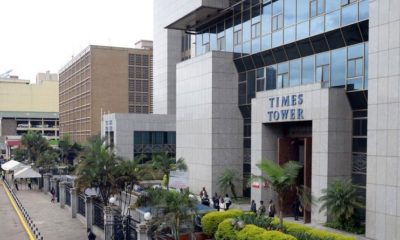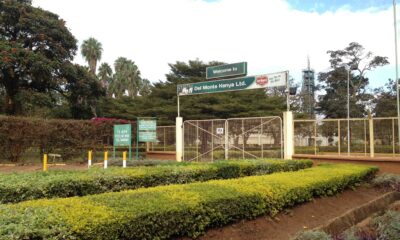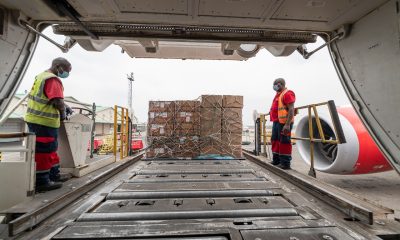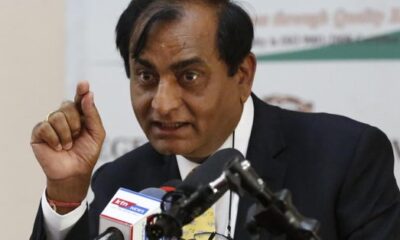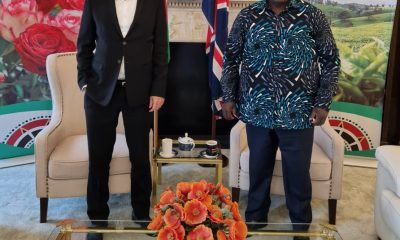Business
Billionaire Narendra Raval Pressures KRA to Waive Sh1.6B Tax Amid Kenya’s Economic Struggles
The dispute centers around a June 2020 undertaking allegedly made by the Treasury, which Devki claims exempted it from paying the VAT on imported equipment.
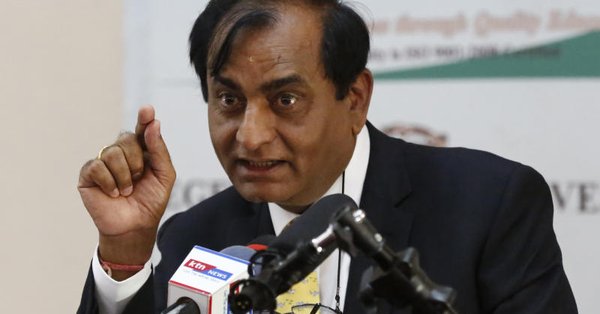
As Kenya grapples with mounting public debt and austerity measures, billionaire industrialist Narendra Raval, through his Devki Steel Mills, is locked in a high-stakes legal battle with the Kenya Revenue Authority (KRA) over a disputed Sh1.6 billion tax exemption.
The case, currently before the High Court in Mombasa, highlights growing tensions between Kenya’s business elite and tax authorities at a time when the country faces significant economic challenges.
Tax Exemption Controversy
According to court documents, Devki Steel Mills is seeking to prevent both the KRA and the National Treasury Cabinet Secretary from collecting what the tax authority describes as “Exempted VAT” on plant and machinery imported for the establishment of a major steel factory.
The dispute centers around a June 2020 undertaking allegedly made by the Treasury, which Devki claims exempted it from paying the VAT on imported equipment.
The company argues that based on this understanding, it proceeded to clear the imported machinery, establish its factory operations, and has since employed approximately 10,000 workers.
KRA Pushes Back
The KRA, however, contends that the alleged undertaking lacks the signature of the responsible Cabinet Secretary—a critical element for its validity. The tax authority has questioned the legitimacy of the document given the substantial tax amount involved.
“The absence of the signature raises concerns about the authenticity and legitimacy of the undertaking,” the KRA stated in its court filing, adding that without proper authorization, the understanding “cannot be considered a proper binding commitment.”
Timeline of Dispute
The case reveals a complex sequence of events:
– In June 2020, Devki requested tax exemptions for its major steel project
– The Treasury allegedly approved the exemption and communicated this to KRA
– KRA reportedly advised Devki to proceed with releasing the goods VAT-free
– In August 2024, KRA sent Devki a demand letter for Sh1.3 billion in unpaid VAT
– By September 2025, the amount had grown to Sh1.6 billion with interest and penalties
– In October, the Treasury reportedly withdrew its undertaking, claiming no legal provisions supported the exemption
This dispute comes amid increasing scrutiny of tax exemptions granted to wealthy businesses in Kenya.
A separate investigation by Parliament is reportedly looking into 14 companies including Raval’s companies that received tax exemptions totaling Sh15 billion.
Devki’s fears come from recent NCBA precedent, where the bank linked to former President Uhuru Kenyatta’s family, suffered a legal setback after a court ruled that the 2019 tax exemption granted for the merger of NIC Group and Commercial Bank of Africa (CBA) was unconstitutional.
The exemption, granted by the National Treasury, bypassed legal procedures. During former President Kenyatta’s administration, the Treasury had waived a Sh350 million share transfer tax for the merger.
The case raises important questions about tax policy consistency, government accountability, and whether large corporations are paying their fair share as ordinary Kenyans struggle with rising living costs.
Devki’s legal argument hinges on the principle of “legitimate expectation,” claiming that once the exemption was granted and acted upon, the government cannot legally reverse its position.
For now, the matter remains before the court, with Devki seeking both to block the tax demand and to compel the Treasury to honor what it describes as a binding commitment to settle the tax bill with KRA.
Economic Context
This legal battle unfolds against the backdrop of Kenya’s efforts to increase tax revenue collection while simultaneously attracting industrial investment. The Devki steel plant in Kwale County represents a significant industrial development, but critics question whether such tax exemptions create an uneven playing field.
As this case progresses, it will likely set important precedents regarding the government’s ability to revoke tax exemptions and the obligations of major corporations to contribute to Kenya’s tax base during challenging economic times.
Kenya Insights allows guest blogging, if you want to be published on Kenya’s most authoritative and accurate blog, have an expose, news TIPS, story angles, human interest stories, drop us an email on [email protected] or via Telegram
-

 Grapevine5 days ago
Grapevine5 days agoAlleged Male Lover Claims His Life Is in Danger, Leaks Screenshots and Private Videos Linking SportPesa CEO Ronald Karauri
-

 Lifestyle1 week ago
Lifestyle1 week agoThe General’s Fall: From Barracks To Bankruptcy As Illness Ravages Karangi’s Memory And Empire
-

 Americas2 weeks ago
Americas2 weeks agoEpstein Files: Bill Clinton and George Bush Accused Of Raping A Boy In A Yacht Of ‘Ritualistic Sacrifice’
-

 Investigations1 week ago
Investigations1 week agoEpstein Files: Sultan bin Sulayem Bragged on His Closeness to President Uhuru Then His Firm DP World Controversially Won Port Construction in Kenya, Tanzania
-

 News2 weeks ago
News2 weeks agoAUDIT EXPOSES INEQUALITY IN STAREHE SCHOOLS: PARENTS BLED DRY AS FEES HIT Sh300,000 AGAINST Sh67,244 CAP
-

 Grapevine1 day ago
Grapevine1 day agoRussian Man’s Secret Sex Recordings Ignite Fury as Questions Mount Over Consent and Easy Pick-Ups in Nairobi
-

 Business2 weeks ago
Business2 weeks agoKRA Can Now Tax Unexplained Bank Deposits
-

 Investigations1 week ago
Investigations1 week agoEpstein’s Girlfriend Ghislaine Maxwell Frequently Visited Kenya As Files Reveal Local Secret Links With The Underage Sex Trafficking Ring


